Immersion Week Gives Georgetown Students An Inside Look at Qatar’s Sustainability Innovations
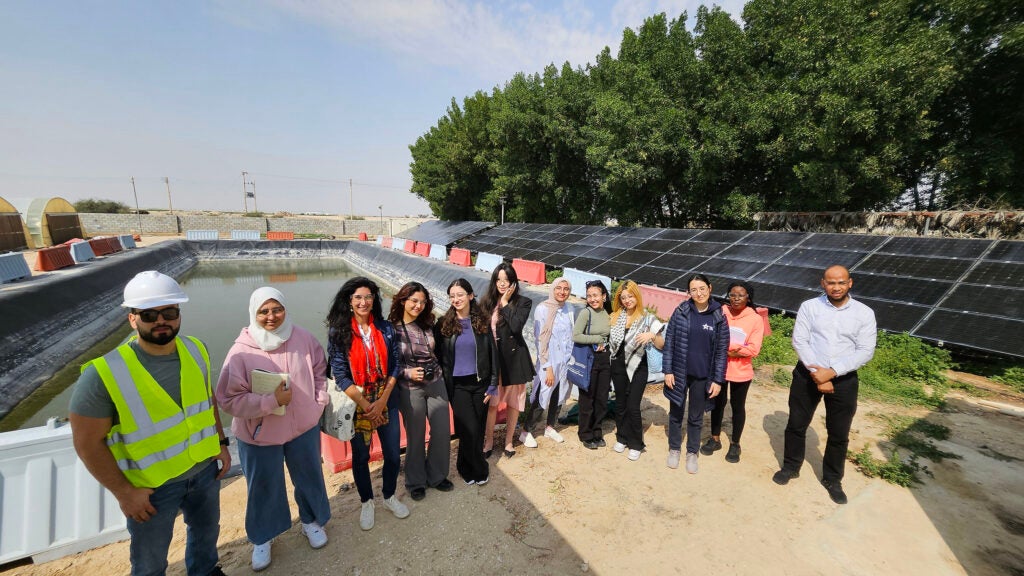
Twelve Georgetown University in Qatar (GU-Q) students exchanged their textbooks for educational fieldwork over Spring Break, exploring groundbreaking green projects in and around Doha.
The week-long immersion program tied into their class on “Water, Climate, and Urban Ecology,” which is taught by Dr. Raha Hakimdavar, Senior Advisor to the Deans of GU-Q and Georgetown University Earth Commons Institute.
As part of this interdisciplinary course, which combines theory, case studies, and fieldwork with a global and regional focus, the GU-Q students have been learning how water resources, climate change, and urban ecosystems intersect and impact the resilience of modern cities. For their final project, the students are designing an arid city of the future.
Dr. Hakimdavar’s guidance throughout the trip ensured that the students made the most of this unique first-hand experience of how Qatar solves the unique urban, environmental, and sustainability threats facing arid regions today.
“The course explores the water-food-energy nexus and how it is complicated by urbanization and climate change,” said Dr. Hakimdavar. “Through classroom learning and real-world experiences, students gain valuable insights into the challenges and opportunities presented by this nexus.”
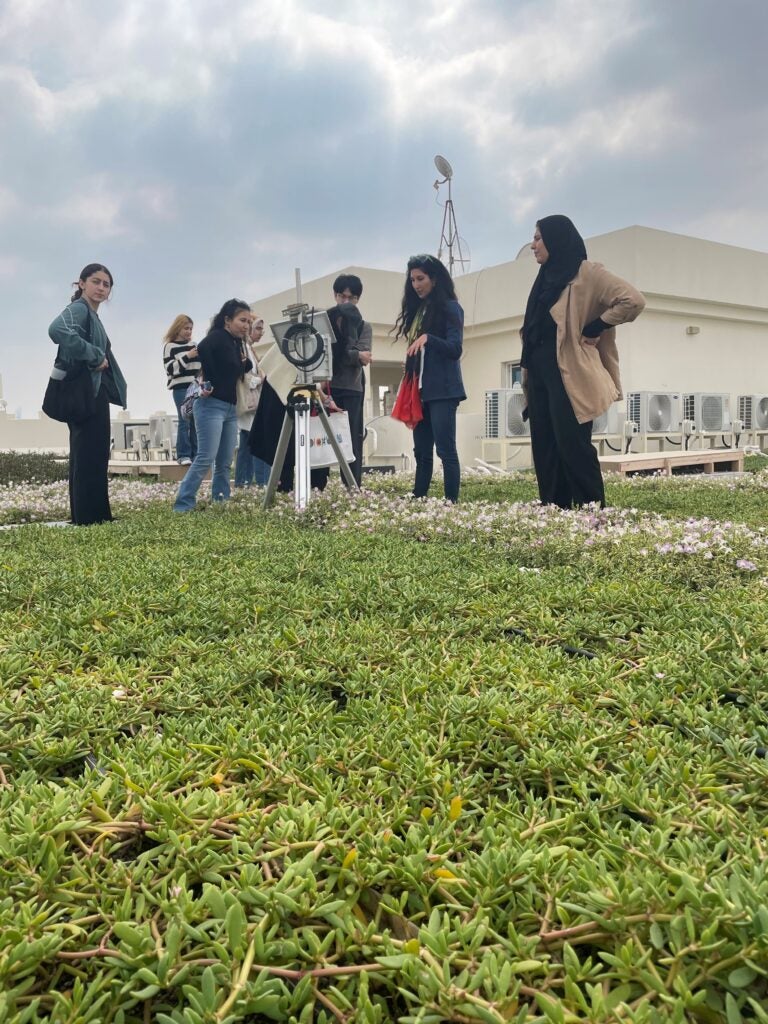
The immersion week included a water and sustainability tour of Education City, a behind-the-scenes look at how the campus ensures environmental sustainability. They explored innovative research projects such as a green roof pilot project with Earthna, toured the Green Island with QF Sustainability Manager Dr. Nawal Al-Sulaiti, and learned about GU-Q’s environmental sustainability culture with Clare Wait, Chief Facilities Management Officer.
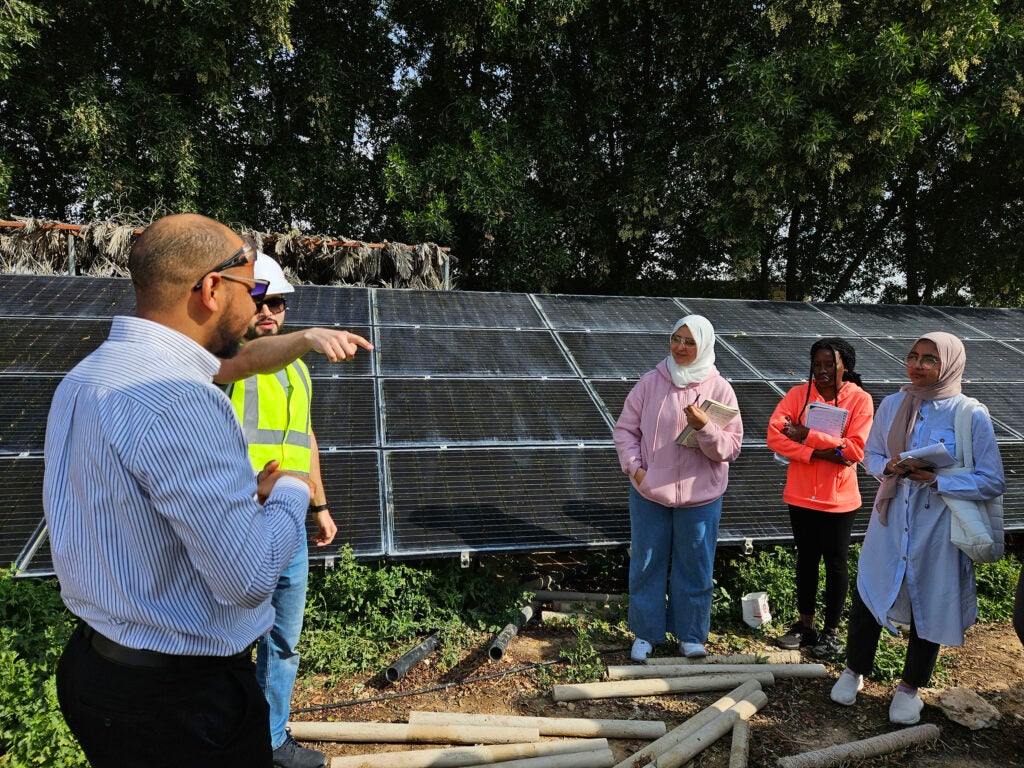
The students also engaged with Qatar Environment and Energy Research Institute (QEERI) and went on a learning tour of a solar-powered desalination farm, witnessing how small-scale desalination can benefit farmers, after visiting Agrico to learn about organic farming and water conservation methods.
They participated in a restoration project at the Al Thakira mangrove forest, an important ecosystem protecting Qatar’s water quality and coastal areas. A stop at the National Museum of Qatar offered a historical context for Qatar’s relationship with its water resources. As the week concluded, the students began applying their new insights to design their vision of a sustainable arid city, which they presented to a number of sustainability practioners from accross Doha.
For the international affairs students, the immersion week and design exercise helped them imagine how they could contribute to a sustainable future. “I was trying to find a link between my interest in finance and sustainability. And this class really caters to that need,” said Jessica Nett (GU-Q’26), an International Economics major from Cameroon. “One of the big aspects of the city we have to design is how we are going to get the finance to put in place all the plans we have.”
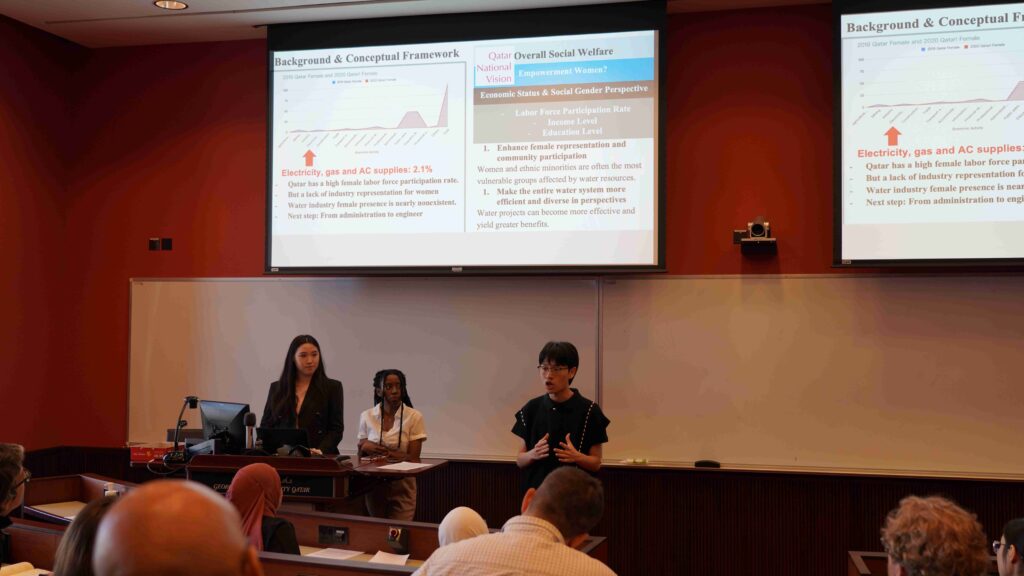
Arid City of the Future presentation
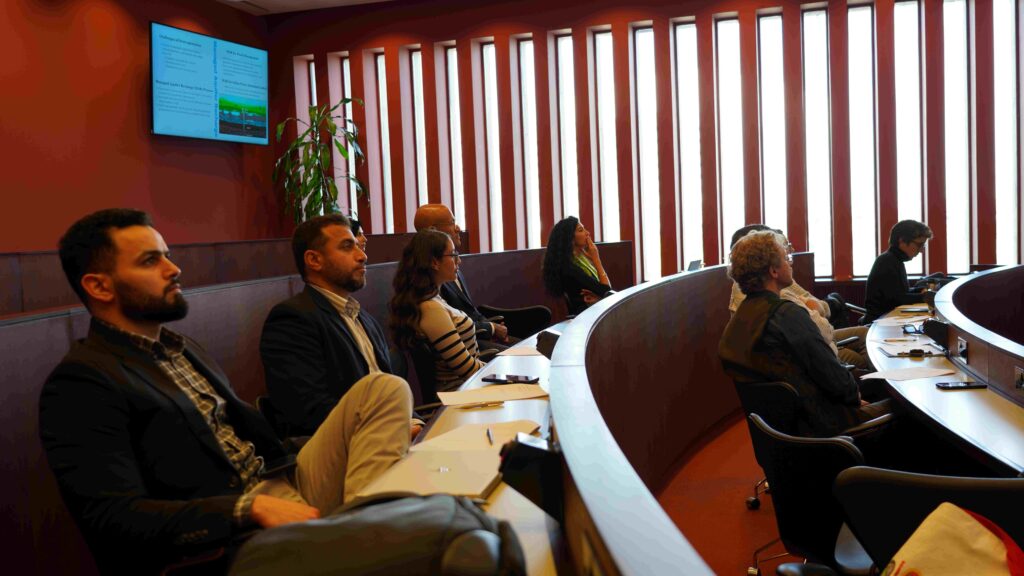
Community stakeholders in attendance
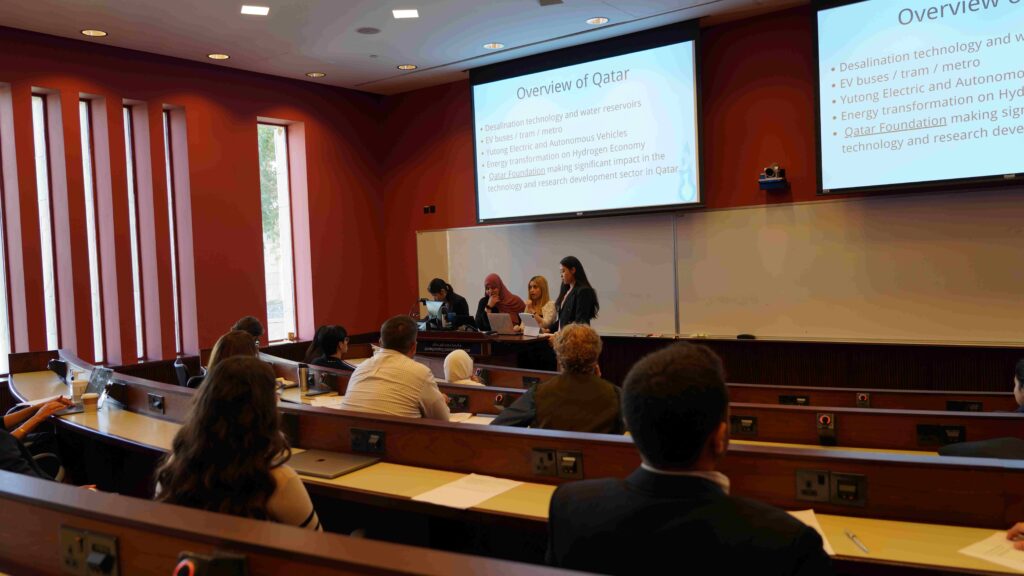
Arid City of the Future presentation